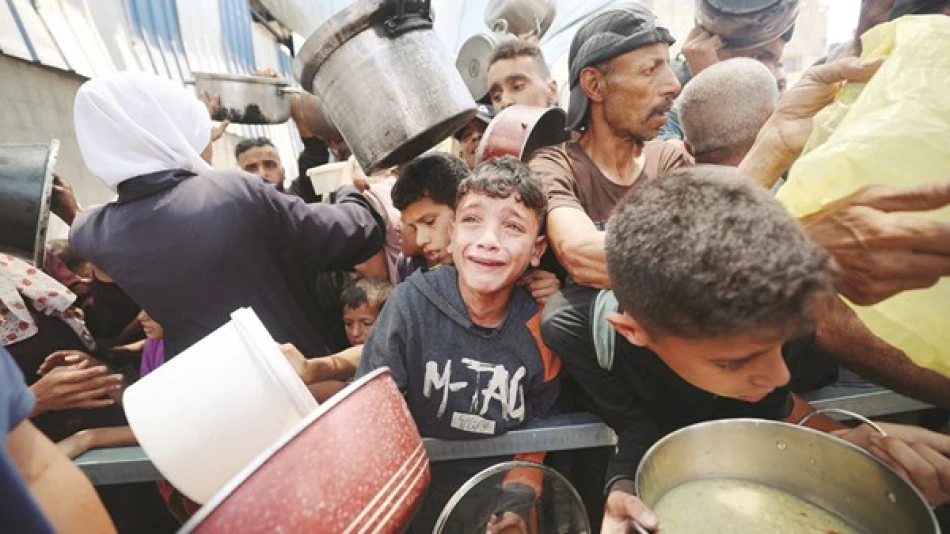
Gaza's Children Facing Alarming Malnutrition Rates, Médecins Sans Frontières Warns
Gaza's Hunger Crisis: Medical Organization Reports Deliberate Starvation Campaign
Doctors Without Borders has documented alarming malnutrition rates among Gaza's most vulnerable populations, with 25% of young children, pregnant women, and nursing mothers showing signs of severe undernourishment. The medical organization's latest assessment points to what it describes as an unprecedented weaponization of hunger, raising critical questions about humanitarian law enforcement and international accountability mechanisms.
The Scale of Malnutrition
According to the organization's clinical data from last week, medical staff are now recording 25 new cases of malnutrition daily among children aged six months to five years, along with pregnant and breastfeeding women who sought treatment at their clinics. This represents a significant deterioration in nutritional status across Gaza's most vulnerable demographics.
Caroline Willemen, project coordinator at the Doctors Without Borders clinic in Gaza City, emphasized the systematic nature of the crisis, noting that both patients and healthcare workers themselves are experiencing hunger-related health impacts.
Weaponization of Food Access
The medical organization's statement goes beyond typical humanitarian language, explicitly characterizing the situation as "deliberate famine caused by Israeli authorities as part of a starvation campaign." This assessment aligns with growing international legal scrutiny over the use of starvation tactics in modern warfare.
Historical Context and Legal Framework
The deliberate denial of food supplies to civilian populations constitutes a war crime under the 1977 Additional Protocol I to the Geneva Conventions. Similar accusations have emerged in other conflict zones, including Yemen and Syria, where siege tactics and aid restrictions have created comparable humanitarian crises.
The current situation in Gaza represents a test case for international enforcement mechanisms, particularly given the unprecedented level of documentation by medical organizations and humanitarian agencies operating in the territory.
Implications for International Response
The systematic documentation of malnutrition rates by established medical organizations like Doctors Without Borders typically triggers formal investigations by international bodies. The organization's direct attribution of responsibility suggests a shift from neutral humanitarian reporting to more explicit accountability language.
Precedent and Accountability
International courts have previously prosecuted military leaders for starvation tactics, most notably in cases from the former Yugoslavia and Sierra Leone. The detailed medical documentation emerging from Gaza could provide crucial evidence for future legal proceedings, regardless of immediate political outcomes.
The targeting of aid seekers, as documented by the organization, adds another layer of potential legal liability under international humanitarian law, which specifically protects civilians attempting to access essential supplies.
Long-term Health Consequences
Malnutrition in early childhood creates irreversible developmental impacts that extend far beyond immediate survival concerns. The documented rates among children under five suggest Gaza will face a generation of cognitive and physical development challenges, creating long-term economic and social consequences that will persist well beyond any eventual conflict resolution.
For pregnant and nursing mothers, severe malnutrition affects both maternal mortality rates and infant development, compounding the crisis across multiple generations simultaneously.
Most Viewed News

 Layla Al Mansoori
Layla Al Mansoori






